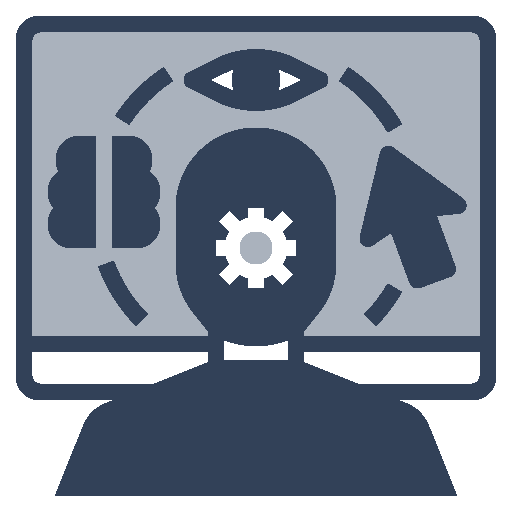Intelligent Systems
The intelligent systems research area focuses on the applications and implementations of artificial intelligence (AI) and machine learning-based methods and techniques to address various organisational, business and societal problems and issues.
The concerted goal is to push the limits of intelligent tools and propose novel AI/machine learning constructs, models, methods, or instantiations with implications for human augmentation for economic and societal purposes.
What We Do

Develop, improve, and apply machine learning models and algorithms to gain insights into solving industry-specific problems.

Construct and develop novel AI models, methods, or instantiations with implications for human augmentation.

Advance knowledge in AI management and governance.
Sub Areas
- AI Governance
- Deep Multi-View Learning
- Human Augmentation and Automation
- Human-Machine Collaboration
- Machine Translation
- Recommendation Systems
- Speech Recognition and Technology-Enabled Language Acquisition
- Supervised and Unsupervised Learning
Our Research Projects

Explainable Risk Models for Heterogeneous Patient Populations in Critical Care
This project aims to improve the accuracy and explainability of clinical risk prediction (e.g., of unforeseen adverse events) in critical care by explicitly modeling underlying heterogeneous subpopulations and through the use of auxiliary knowledge.

The “Other Me”: Human-Centered AI Assistance In Situ
We propose an integrative program of fundamental research towards a vision in which every human will have an AI assistant for daily life and work. Our overall aim is to build conceptual understanding of human-AI collaboration, to develop representations, models, and algorithms for situated assistance, and to integrate them in an experimental device platform for evaluation.
- Human Augmentation and Automation, Human-Machine Collaboration

Augmented Awareness through Scene Sonification
People with visual impairments (PVI) struggle with spatial awareness due to a lack of awareness of distant scenes. While existing technologies sonify individual objects for near-field awareness, the study explores the usability of AI-generated sounds for communicating far-field scenes to the blind, aiming to enhance spatial awareness and orientation for PVI.
- Human Augmentation and Automation

Virtual Reality Simulator Sickness Project - Phase 2
This project aims to analyze and predict VR simulator sickness by collecting gameplay data through an extended VRHook tool. A Human-centered Explainable AI system trained on this data will assist VR developers by providing insights to minimize the risk of simulator sickness in their content.
- Human-Machine Collaboration, Machine Translation, Supervised and Unsupervised Learning

iTILES: Independent Living, Tile by Tile
iTILES is a playware system that combines interactive tiles, mobile apps, and data analytics to improve users' functional and cognitive abilities through engaging gameplay. It collects data through multi-sensory inputs and provides therapists and users with actionable insights to optimize their rehabilitation journey.
- Machine Translation

Investigating the Use of Productive Failure as a Design Paradigm for Learning Computational Thinking: A T-2-L (Technology to Learner) Approach
This project addresses the demand for Computational Thinking (CT) skills in K-12 education. It seeks to innovate CT learning experiences through evidence-based Productive Failure theory and develop an unobtrusive data collection framework using consumer devices to enhance understanding and validation of learning processes in programming classrooms.
- Human-Machine Collaboration

Designing Intelligent Human-computer Interfaces to Extend Cognitive Capabilities
This project investigates Assistive Augmentation, aiming to design intelligent human-computer interfaces that expand our perceptual and cognitive abilities. It focuses on two areas: developing AI assistants that work in symbiosis with the human brain to enhance rational thinking and decision-making, and exploring how wearable devices can augment different cognitive systems.
- Human Augmentation and Automation, Human-Machine Collaboration, Supervised and Unsupervised Learning

Mandated vs Autonomous AI Use: An Empirical Examination on Worker's Labor Outcomes and Social Welfare
Amid AI reshaping employee interactions, our project examines mandated vs. autonomous AI impacts on worker empowerment, labor outcomes, and firm/societal welfare. Focused on food delivery platforms, using randomized field experiment data, we aim to compare worker performance, assess efficacy for diverse groups, measure effects on platforms and society, and propose ethical AI design principles.
- Human-Machine Collaboration
